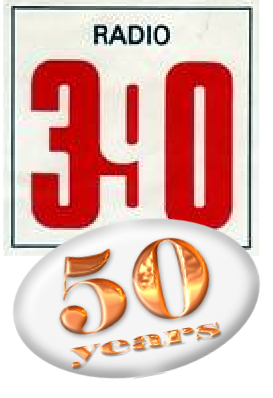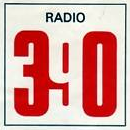© 2014-

The Legal Fight
Radio 390 mounted the strongest -
ROUND 1
Official action to stop Radio 390 broadcasting came, just before the station’s first birthday, on 21st and 22nd September 1966 when summonses were issued against Ted Allbeury (Managing Director of Estuary Radio Ltd) and David Lye (Company Secretary of Estuary Radio Ltd) for broadcasting without a licence, contrary to the Wireless Telegraphy Act 1949.
On 24th November 1966 both men appeared at Longport Magistrates Court, Canterbury where they pleaded not guilty and argued that the station was broadcasting from a position 8.5 miles offshore, well outside the then 3 mile territorial limit.
The Post Office gave evidence from three of its engineers that the station had broadcast on 773 kHz (388m) on 16th August 1966 and that these transmissions had been monitored and recorded at three separate locations -
The case against Radio 390 centred not just on the fact that the broadcasts had taken place, but whether in fact Red Sands Fort was within British territorial waters. Sir Peter Rawlinson QC, appearing on behalf of Estuary Radio Ltd. and its two officers, stated that the Fort was at least 6 miles off the Kent coast and therefore outside territorial waters. For the Post Office John Newey argued that under the terms of the Order in Council adopted in September 1964 to ratify the 1958 Geneva International Convention of the Sea, the Thames Estuary can be considered a 'bay' if the area of water within it exceeded the area of water in a semi circle drawn from a baseline across the indentation of the coast. The crucial factor in this calculation therefore is the positioning of the two points between which the artificial baseline is drawn.
A naval surveyor, Lt. Commander P B Beasley, Head of the Hydrographic Department at the Ministry of Defence told the court that he calculated the area of water in the bay to be 683 square miles, five square miles more than in the semi-
A further argument by the Post Office to substantiate the claim that the Fort was inside territorial waters was based on the provision in the Geneva Convention relating to low tide elevations. This provision determines the starting point for calculating British territorial waters and includes all 'islands' uncovered at low water. The Post Office claimed that because Middle Sands, a sandbank off the Isle of Sheppey, was regularly uncovered at low tide it met this provision and, therefore, formed the baseline from which the extent of territorial waters could be calculated.
Sir Peter Rawlinson, summing up on behalf of Estuary Radio Ltd. said the prosecution had only been able to place the Fort within territorial waters by taking into its calculations stretches of the River Thames and River Medway to provide an area of water just sufficient (by only 5 out of 683 square miles) to comply with the terms of the Geneva Convention.
Despite these arguments, however, the magistrates found that the Post Office had proved its case and fined Estuary Radio Ltd. £100 for using an unlicensed transmitter inside territorial waters, while Ted Allbeury and David Lye were given conditional discharges. A Post Office application for confiscation of £12,000 worth of transmitting equipment and the award of costs was refused by the Court.
Radio 390 closed later that day, but Estuary Radio Ltd decided to appeal against the Court’s decision and engaged a marine hydrographer to establish whether Middle Sands sandbank was ever exposed at low tide -
However the marine hydrographer’s findings showed that Middle Sands was always covered with at least 5” of water at low tide and therefore Red Sands Towers was outside the 3 mile territorial limit. Armed with this new information Radio 390 returned to the air at 11.30pm on 31st December 1966.
ROUND 2
On 13th February 1967 the General Post Office issued 28 summonses against Radio 390 alleging that on four dates in January the station had broadcast without a licence. In a separate development Ted Allbeury resigned as Managing Director of Estuary Radio Ltd on 15th February and Company Secretary, David Lye, took over managing the station.
On 17th February 1967 Sir Peter Rawlinson QC, acting for Estuay Radio Ltd asked the Queens Bench Divisional Court for leave to seek an order stopping magistrates at Southend hearing the 28 summonses. The Post Office was accused of ‘shopping around’ to find a magistrates court sympathetic to ensuring the closure of Radio 390. Permission for the action requested by Estuary Radio Ltd was turned down by Lord Justice Winn, Mr Justice Ashworth and Mr Justice Widgery who said they had no powers to prevent the prosecution being heard in any court.
Southend Magistrates Court considered the 28 summonses on 22nd February 1967. A representative of the Royal Navy gave evidence that Middle Sands was uncovered at low tide -
ROUND 3
Aggrieved by this apparent defiance of the magistrates’ decision the General Post Office applied to the Queens Bench Division of the High Court on 10th March 1967 seeking an injunction to prevent Radio 390 from continuing to broadcast.
Acting Managing Director, David Lye, accused the Post Office of trying to stop the station proceeding with its appeal by issuing the writ and confirmed that Radio 390 would only cease broadcasting if the High Court granted the Post Office an injunction.
The case was eventually heard in May 1967 when an injunction requiring Radio 390 to cease its transmissions was granted by Mr Justice O’Connor who had been asked to determine whether or not Red Sands Towers was within British territorial waters. Sir Peter Rawlinson, acting for Estuary Radio Ltd, successfully pleaded for a 19 day period of grace while leave was sought to appeal against this decision. David Lye said “We have lost today, but our fight to keep the station on the air goes on.”
ROUND 4
Radio 390's application to be allowed to continue broadcasting on the grounds that the Red Sands Fort was outside territorial limits was finally heard in the Court of Appeal (Civil Division) before Lord Justice Sellars, Lord Justice Diplock and Lord Justice Winn in July 1967. Their decision in a judgement given on 28th July 1967 ruled that the Fort was within territorial limits and dismissed the station's appeal against its February conviction.
Counsel for Estuary Radio Ltd., Mr. J P Harris, asked for a stay to enable the station to remain on the air until the Marine etc. Broadcasting (Offences) Act came into effect on 15th August 1967, but the Court refused this application. Lord Justice Sellars told the defendants "there is no reason why you should broadcast any longer, all you have to do is cease broadcasting 18 days earlier than you would have done."
After the hearing David Lye, Acting Managing Director of Estuary Radio Ltd., told reporters that the protracted legal battle had cost the station £10,000 and as a consequence the company had lost virtually all the profit it had earned over the year and ten months Radio 390 had been broadcasting.






Ground
Back to




Click here to visit the Britain Gallery and the full story of Radio 390




